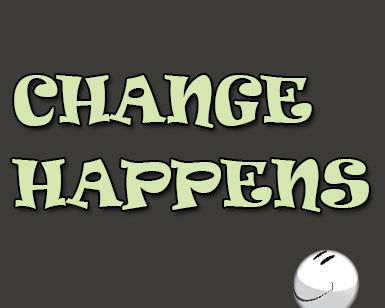 Change doesn’t happen on its own. It is accomplished by leaders who consistently cause others to change their behavior such that results go up. These leaders don’t just look for nods of agreement when they speak, because nodding heads alone don’t translate into results. Rather, they focus on what people actually say and do, because that’s what impacts results.
Change doesn’t happen on its own. It is accomplished by leaders who consistently cause others to change their behavior such that results go up. These leaders don’t just look for nods of agreement when they speak, because nodding heads alone don’t translate into results. Rather, they focus on what people actually say and do, because that’s what impacts results.
Here are four tips for becoming an Agent of Change:
1. Think “what do I want them (him/her) to do more frequently, better, differently, or less often because of my intervention, such that results will improve?”
For example, Mary is about to lead a teleconference with her district managers about a new product the company is launching. The product benefits clients but also increases their fees.
Mary has decided that she wants the district managers to significantly increase the number of calls they make to key clients to explain the benefits of the new product. Mary will state her personal plan for calling on large clients and then share an expectation for the minimum number of client calls her managers need to complete in the next 10 days, along with how she will follow-up.
2. Expect resistance. This doesn’t mean “expect the worst.” Just accept the reality that anytime you want people to do more, or do things differently, or even do less of the things they are already comfortable doing, they will resist.
Mary knows that calendars are full and some district managers don’t like the new product. Mary has anticipated their concerns (starting with “I just don’t have time”) and determined what she will say and do to overcome them.
3. Decide what changes you will make in your own personal behavior to be a more effective Agent of Change, and make them.
Mary realizes she needs to better role-model what she expects her district managers to do. That’s one reason she’ll be at the forefront of personally making client calls about the new product and then sharing her experiences during debriefs with her team.
4. Give yourself the Behavior Change Test. Anytime you intervene with anyone, ask yourself, “Did my intervention change their behavior in such a way that we are closer to attaining desired results?”
If you are a true Agent of Change, your answer will be “Yes.”
Your thoughts?
Julie Freeman is Regional Director for Cohen Brown Management Group, Inc.
0 Comments
Leave a reply
You must be logged in to post a comment.

